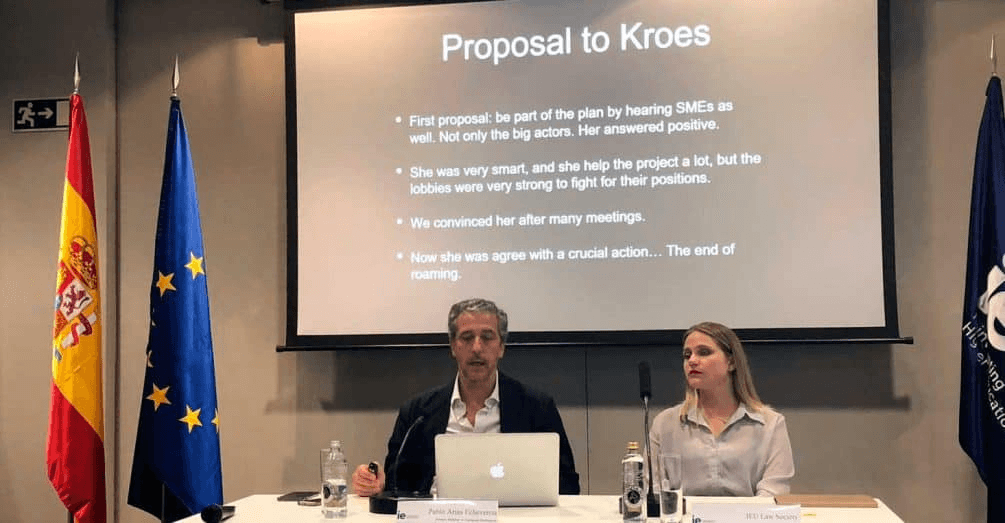- Home
- We Are Law School
- News
- Pablo Arias Echevarría On The End Of Eu Roaming Charges
Pablo Arias Echevarría on the end of EU roaming charges

In a conference organized by the IEU Law Society, Pablo Arias Echeverría, former Member of the European Parliament, talked about the importance of ending EU Roaming and how it has created a step towards composing an effective roadmap to complete the digital single market in Europe.
On April 27, the IEU Law Society hosted a conference about the end of EU roaming charges. Our guest speaker, Pablo Arias Echevarría, was a member of the EU Parliament when roaming charges became a hot topic in the EU Parliament and played a very active role in the process. He explained how the end of roaming charges contributed to the formation of the European digital single market and provided the audience with details about the process, from the initial stages to its successful implementation. As usual, a round of Q&A followed.
Arias said that the single market was ‘a story of success with many problems’ and reminded the audience that the EU makes up 23% of the world’s GDP, albeit it is losing its position. He added that the USA, South Korea and China are the leaders of the digital revolution, not the EU. One of the reasons, he explained, is that the digital aspect of the single market has not been taken care of adequately. For instance, in 2005 the cost of roaming in Europe for the user exceeded 1€/minute… how come there were no physical borders within the EU, but there were digital ones!? In addition, Mr. Arias complained that without a digital project resulting in a digital single market, the youth would not identify with the ‘old-fashioned’ European project.
The former Member of Parliament explained that getting rid of roaming charges was a very long process. Lobbyist telephone companies made it difficult, too. The process included a working group that discussed the issues that arose with companies that were invited to the meetings such as Google, Facebook, Amazon, DHL, Correos, Telefónica or Vodafone. After several rounds of proposals to key personalities in the European institutions, the project achieved the success it sought.
However, the broader goal of bringing a truly digital market to the EU is not completed yet: much work is needed on topics such as autonomous cars, big data, cloud computing… But every cloud has a silver lining: Mr. Arias explained that, for the first time, Europe is preparing legislation for something before it actually happens, which is crucial for the competitiveness of the market.
Today, the digital single market already represents more than the physical single market, with estimated values of €340bn and €300bn, respectively. Furthermore, the digital single market is one of the priorities of the EU, in fact, Junker included it as one of the four priorities in his electoral program.
Article written by Gracia Pujadas Morales, IEU Law Society
